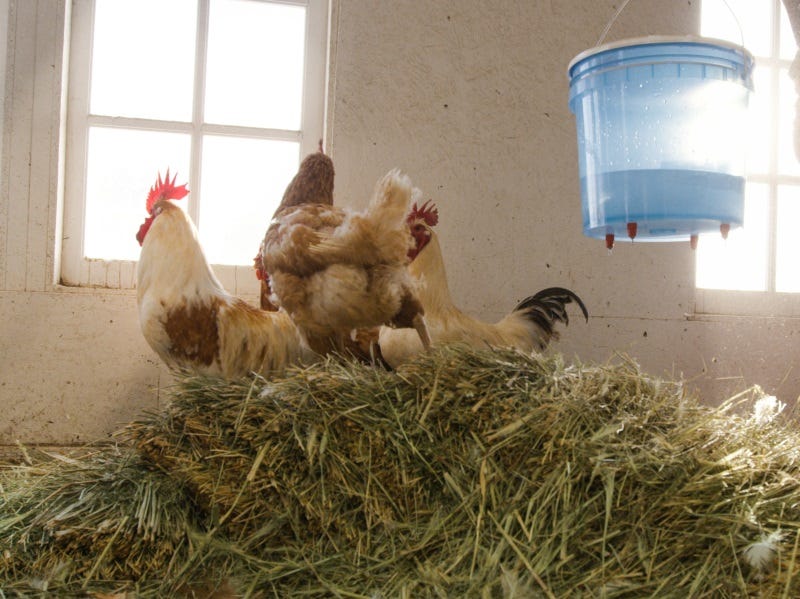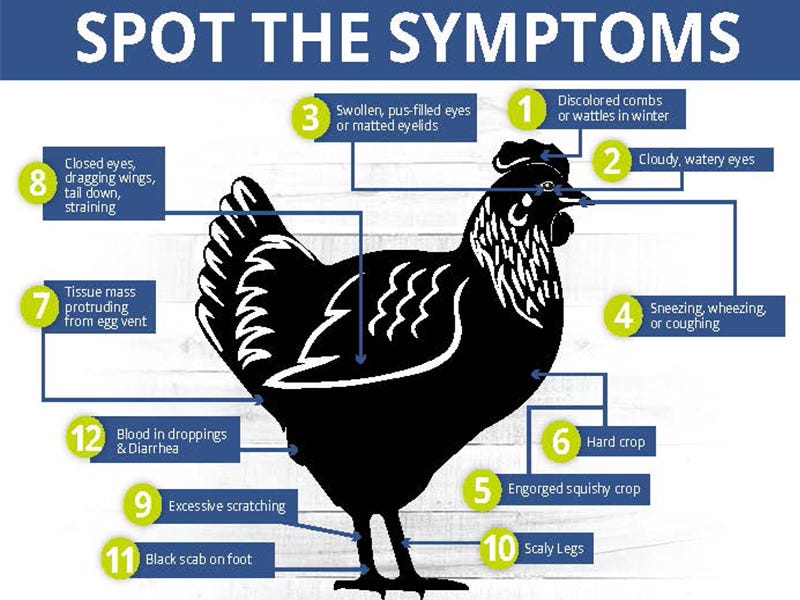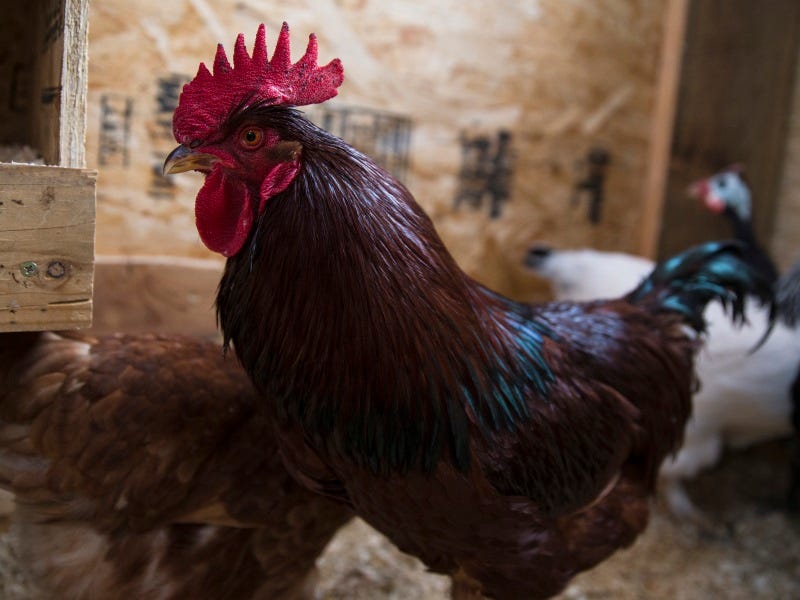Tips for Sick Chickens, Turkeys & Poultry

Do you think you have sick poultry? Here's some helpful tips to spot the symptoms.
Whether you're a first time chicken farmer or a seasoned veteran, there is always a great "unknown" when it comes to disease.
If you're looking for medication for your poultry, click here to see what's in stock.
Well, thanks to this great #N40 infographic this is now a known unknown.

Poultry Diseases and Symptoms
Frostbite in Poultry
Symptoms: pale combs or wattles in winter; reddened areas indicate thawed frostbite
Prevention: Increase coop ventilation to remove excess moisture in the air. Consider providing supplemental heat.
We have a selection of chicken health products online here.
Conjunctivitis
Symptoms: cloudy, watery eyes; blindness can occur
Prevention: Conjunctivitis is caused by ammonia buildup in the coop, often occurring in deep-litter systems. Replace the litter to eliminate ammonia buildup.
Poultry Eye Worms
Symptoms: swollen, inflamed eyes
Prevention: Common in the South, eye worms are carried by cockroaches, so controlling cockroaches around the coop is key.

Respiratory Disease in Poultry
Symptoms: sneezing, wheezing or coughing
Prevention: Respiratory illnesses, like bronchitis or coryza, spread rapidly among chickens and are best prevented by practicing biosecurity.
Sour Crop
Symptoms: squishy, smelly, engorged crop
Prevention: Sour crops occurs when the chicken's crop doesn't fully empty and infection sets in. Provides adequate access to grit and avoid feeding moldy feed and excessive amounts of bread.
Impacted Crop
Symptoms: hard, engorged crop; difficulty breathing
Prevention: The crop has been blocked by food or objects too large to pass. Stop feeding until the blockage is removed. Give chickens a mixture of olive/vegetable oil and water, and massage crop to try to break up blockage. Surgery might be necessary.
Need medicine for your birds? We've got some options online here.
Prolapsed Vent Symptoms
Symptoms: tissue mass protruding from egg vent, often in pullets that just began laying
Prevention: Gently clean the back of the hen and tissue mass with warm water, and apply antiseptic ointment. Push tissue mass very gently back into vent and isolate hen from the rest of the flock. Feed on fresh greens and water to prevent more egg laying, clean the vent area daily, and apply ointment.
Within a few days, the hen should be recovered and can return to the flock.
We've got an entire magazine dedicated to chickens... and it's free!
Poultry Egg Bound
Symptoms: straining, dragging wings, droopy tail, closed eyes
Prevention: An egg-bound hen usually dies within 48 hours if unable to pass the egg, so do everything possible to help her relax and lay the egg without it breaking inside.
External Parasites
Symptoms: excessive scratching
Prevention: Prevent external parasites, such as lice, mites, ticks or fleas, by providing plenty of dust-bathing facilities and using food-grade diatomaceous earth in the litter.
Leg Mites in Poultry
Symptoms: scaly, flaky or rough legs
Prevention: Leg mites can be difficult to get ride of but are usually treated by coating the roosts and affected legs with kerosene or Linseed oil treatment every few days.
Bumblefoot Symptoms
Symptoms: black scab on the foot
Prevention: Bumblefoot is a staph infection that can occur when a chicken gets a cut on its foot. Treat the infection by cleaning the cut, applying antiseptic cream and bandaging.

Coccida in Poultry
Symptoms: diarrhea and bloody droppings
Prevention: Mature chickens build up resistance to these small parasites, but they're the No.1 cause of death in small chicks. Use a feed for young chicks containing coccidiostats until they build up immunity.
If you have any questions, use the form below and we'll work to get back to you within 24 hours.
NOTE: While this infographic could possibly give you an idea as to what is happening to your flock, it is not tended to diagnose or prescribe a solution for your birds. If you are unsure of what you could be experiencing, contact your veterinarian for more information.
